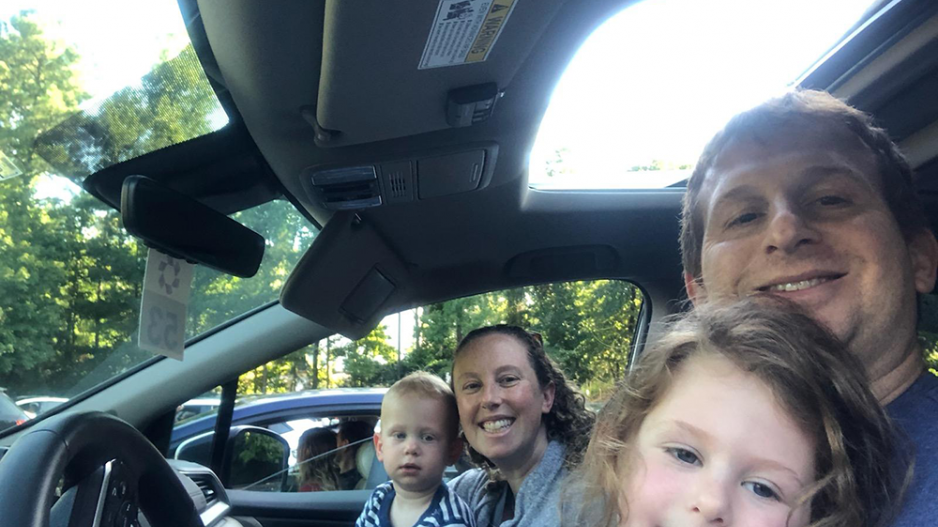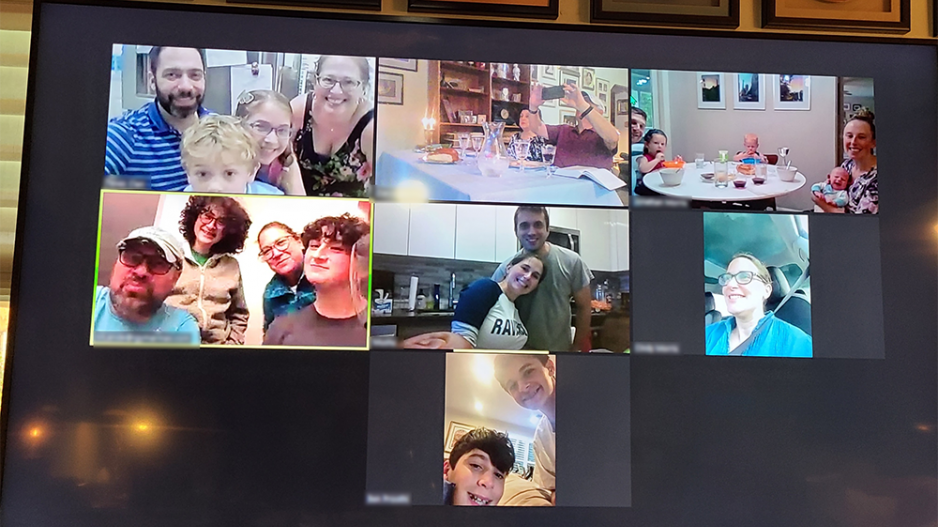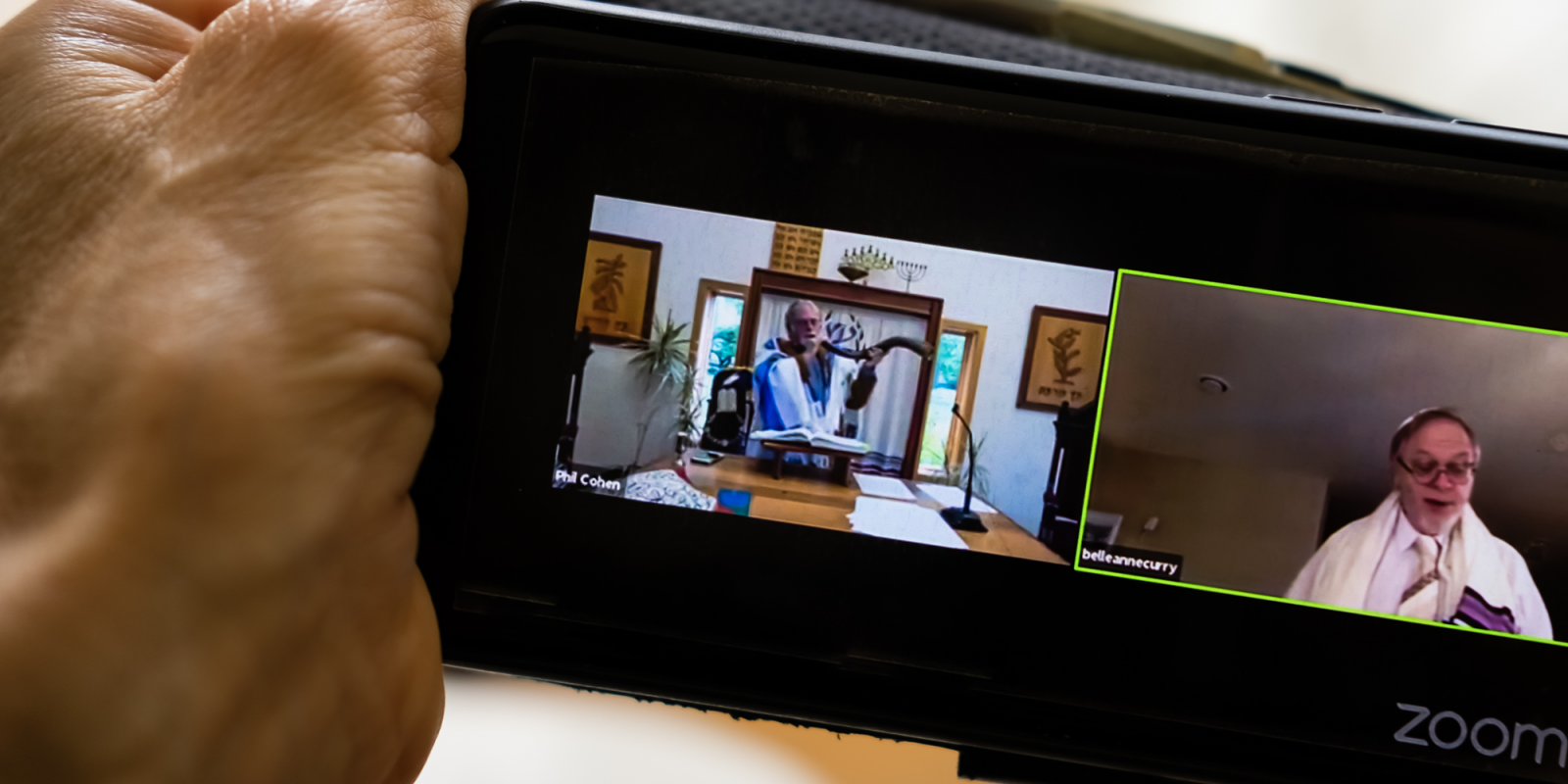For much of America the holiday season is months away, but for those of us who are Jewish, we are in the midst of it. This past weekend, we gathered together in unique ways to celebrate the New Year on Rosh Hashanah, and this week we prepare for Yom Kippur, a holiday that typically sees thousands pray together in services throughout the world. That is immediately followed with Sukkot. This year, we will not be gathering with family under a Sukkah. It will conclude on Simchas Torah, but we will not be dancing together with the Torah. COVID-19 is stealing holidays from us, again.
And yet, perhaps it is also giving us new ways to celebrate more meaningfully.
Last April, as we sat around our Seder table to celebrate Passover with just the three of us, I remember feeling almost shell-shocked. I had spent days preparing a traditional experience. My Great Grandmother’s recipes would be served on dishes painted by my Great Aunt and prepared just as they had been in my mother’s home. We had the computer set up, so my father could lead the Seder over a Zoom conference call for 40 people, all of whom normally come together around my parents’ dining room every year.
It was terrible. Halfway through, my son was upstairs with the beginnings of a fever that would have him quarantined for the next two weeks, my younger son and I had abandoned the table and the Zoom call and I was emotionally drained.
The next night, for the second Seder, I made the entire meal out of chocolate and we ate dessert for dinner in our pajamas. We Zoomed again, but mostly so my son could talk to us from his bedroom, where he ate from a tray on his bed.
As Rosh Hashana approached, I kept thinking back to that failed holiday. What had gone wrong (in my opinion) was that I had refused to accept that this celebration was different. I wanted the traditions that I knew and loved and had tried to re-create them rather than accept that in a time when nothing was normal, holidays could not be normal, either.
And so for Rosh Hashana, I was heartened to hear of creative solutions that so many families around the country had developed to celebrate together. Families were sitting outside and watching services on their TVs through family room windows so the generations could feel safe together.
Grandparents were hosting children and grandchildren for outdoor family dinners. Synagogues were hosting multiple shortened services with a small number of attendees, providing services via video conference, and rabbis were offering drive-through and parking lot Shofar blowings across the country.

In my family, which is dispersed across the country, we “Zoomed” dinner again. This time, I knew better than to try to create a traditional dinner for three and instead served everyone’s favorite foods. So we had pizza and ice cream, while we watched cousins and grandparents from Texas to Georgia eat matzoh ball soup and brisket.
And, you know what? We were all happy. We made Challahs and delivered them to friends who we wished we could have spent time with. We went apple-picking to hand-select the perfect apple to dip into our honey. And we are heading to the beach this weekend so we can throw our sins into the ocean during our own personal Tashlich ceremony.

As the country gears up for a winter holiday season that includes holidays from many cultures, this is a chance for all of us to think about new ways to celebrate. Afterall, when you cannot celebrate the way you always have or with the people you would like, maybe it’s time to create new experiences. COVID-19 may not so much be stealing our holidays as it is giving us the chance to redesign them.
And, perhaps it is reminding us that we are not all so different from one another. In the Spring, just as my family fretted over how best to celebrate our Jewish holidays, my Muslim friends were coming up with solutions for celebrating Eid. I know so many people who are already worried about what Diwali, Thanksgiving, Christmas and Kwanza will look like, and are beginning to plan new holiday experiences. The one thing that unites all of us is our desire to be with the people we love in a safe way, no matter what our spiritual traditions might be.
My parents, who are both in their 70s, attend services religiously (no pun intended), but recently told their Rabbi that they do not plan to go to Friday Night Services when the temple deems them safe to hold again. The Rabbi was shocked until my father explained that now each week, our family has Shabbat dinner together. We Zoom in from four states with two grandparents, four children, their spouses, seven grandchildren and a smattering of pets to check-in, show off Cub Scout uniforms, listen to piano recitals and hear about tennis matches. Oh yeah … and we say a few blessings. Some of us are eating. Some are cooking. Some are still working during those weekly Shabbat dinners.
But my parents know, and they have taught us, that sometimes traditions come out of desperate times and those can be the most beautiful ones to hold on to.
For those who are celebrating now, Shana Tovah. For those who are still anticipating your next holiday, may you also find the traditions that mean the most to you in a time when we are all being reminded to hold on to the people who mean the most to us.
Cindy Morris is ASA’s Vice President-Development and Community Engagement.
Image of Zoom Rosh HaShana and drive-through Shofar blowing courtesy of Cindy Morris













